In the end, the expected close result never happened. At the second congress (“citizens’ assembly”) of Spain’s radical anti-austerity party Podemos, the proposals and candidate list of outgoing general secretary Pablo Iglesias easily defeated those of his rival, outgoing political secretary Inigo Errejon.
In a December Podemos membership vote over the rules that were to govern the congress, Iglesias’s position had only won marginally (41.57% as against 39.12% for Errejon’s).
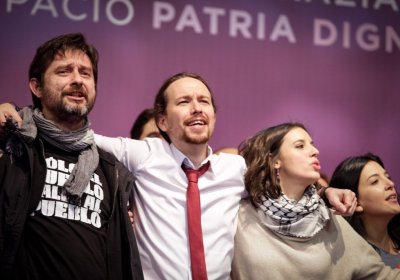
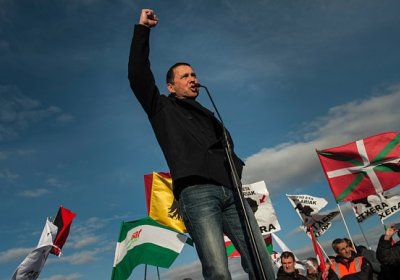



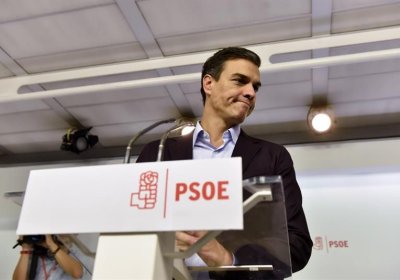


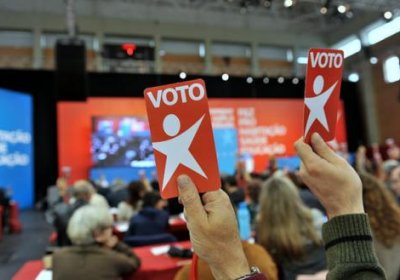
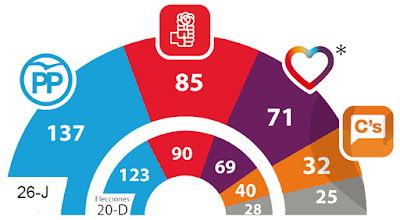

 United We Can.
United We Can — the united ticket made up of Podemos, the United Left, the green party Equo and three broader alliances in Catalonia, Galicia and the Valencian Country — is campaigning in the June 26 Spanish general elections on a plan to reverse economic austerity.
United We Can.
United We Can — the united ticket made up of Podemos, the United Left, the green party Equo and three broader alliances in Catalonia, Galicia and the Valencian Country — is campaigning in the June 26 Spanish general elections on a plan to reverse economic austerity.